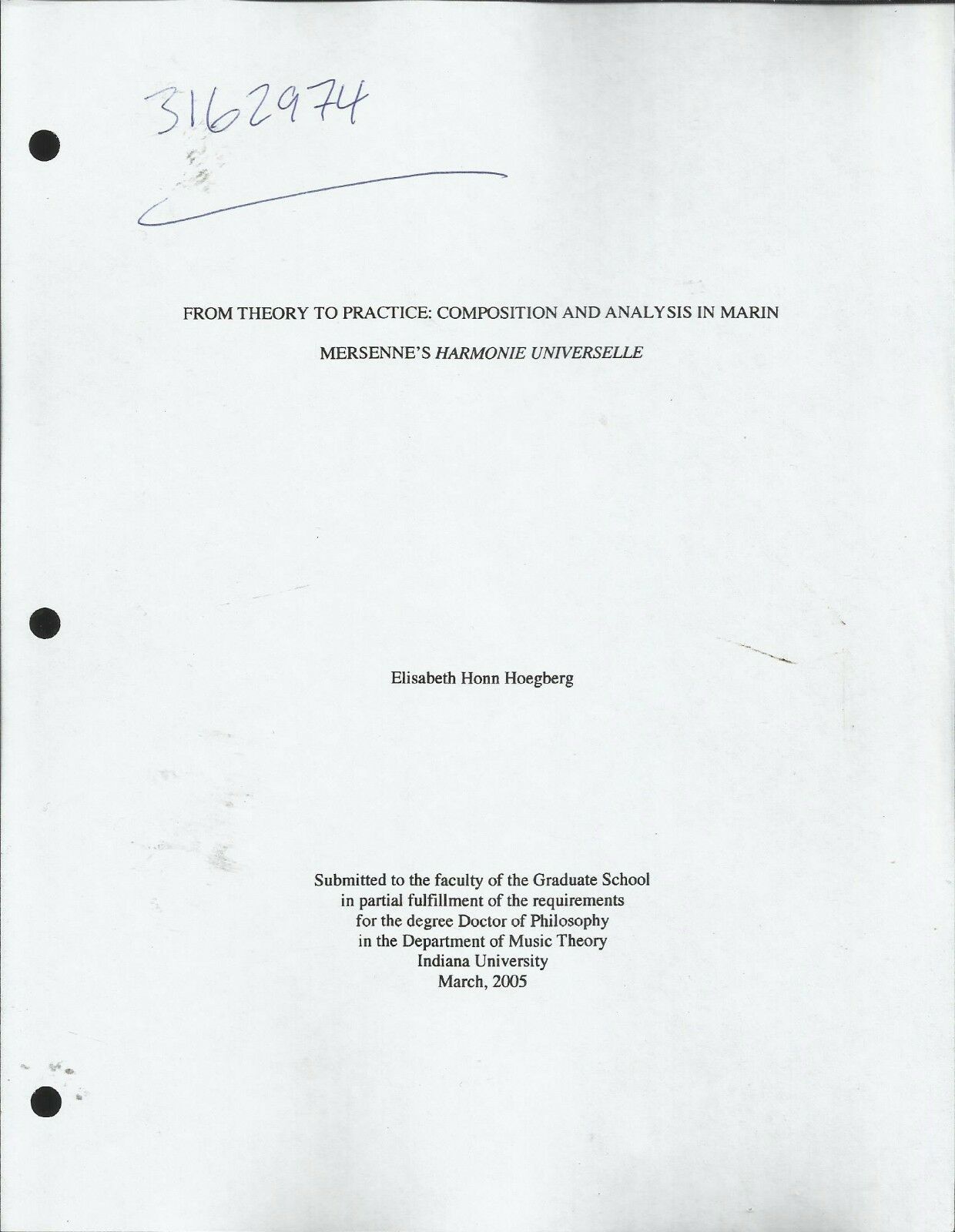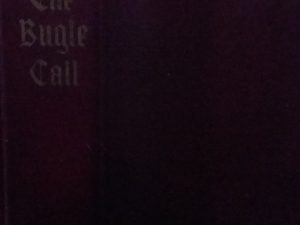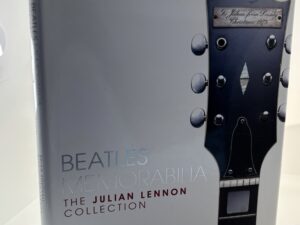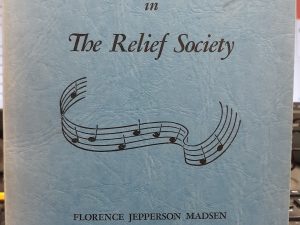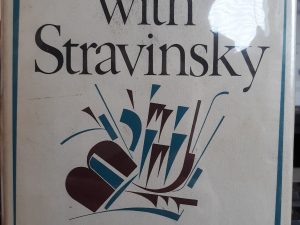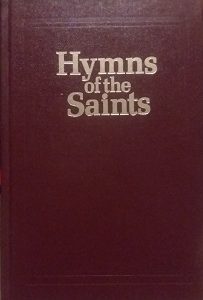From Theory to Practice: Composition and Analysis in Harmonie Universelle
$12.00
Full Title: From Theory to Practice: Composition and Analysis in Marin Mersenne’s Harmonie Universelle
Unbound thesis. Three holes punched for a binder. There is little to no wear. Clean text.
Submitted to the faculty of the Graduate School in partial fulfillment of the Requirements for the Degree Doctor of Philosophy in the Department of Music Theory, Indiana University, March 2004.
Abstract:
The Harmonie Universelle (1636-37) of Marin Mersenne (1588-1648) epitomizes intellectual thought in early-seventeenth-century France as it encompasses nearly every topic of contemporaneous music theory, which embraced both scientific discoveries, attempting to find rational means to explain musical events, as well as traditions of Renaissance humanism that shaped the style of French music. Due to its breadth of topics and approaches, the Harmonie Universelle has been difficult to classify and incorporate into histories of music theory, and has been relatively ignored for a work of such scope and magnitude.
One previously neglected area of study is Mersenne’s interest in the relation of practice to theory that is reflected in the Harmonie Universelle beyond its well-known descriptions of tunings and musical instruments. Mersenne was among the earliest theorists to relate theory to practice in a significant way; the Harmonie Universelle does not merely instruct readers on principles of composition, but also articulates theories drawn from practice. Although Mersenne discusses Renaissance contrapuntal theory, he attempts to describe French musical practice of his time mostly in terms of chord structures and their interval arrangement, a departure from the linear analytical approach favored by his few contemporaries as well as many modern scholars.
This dissertation explores Mersenne’s compositional writings as they reflect his intellectual milieu in order to relate them to his more speculative work. The compositional and analytical theories scattered throughout the Harmonie Universelle are organized and described to make them more comprehensible. Finally, the application of his theories of analysis and composition to contemporaneous musical practice demonstrates their value in exploring an under-studied era of musical history through their emphasis on the vertical structures in late-sixteenth and early-seventeenth-century music.
1 in stock

